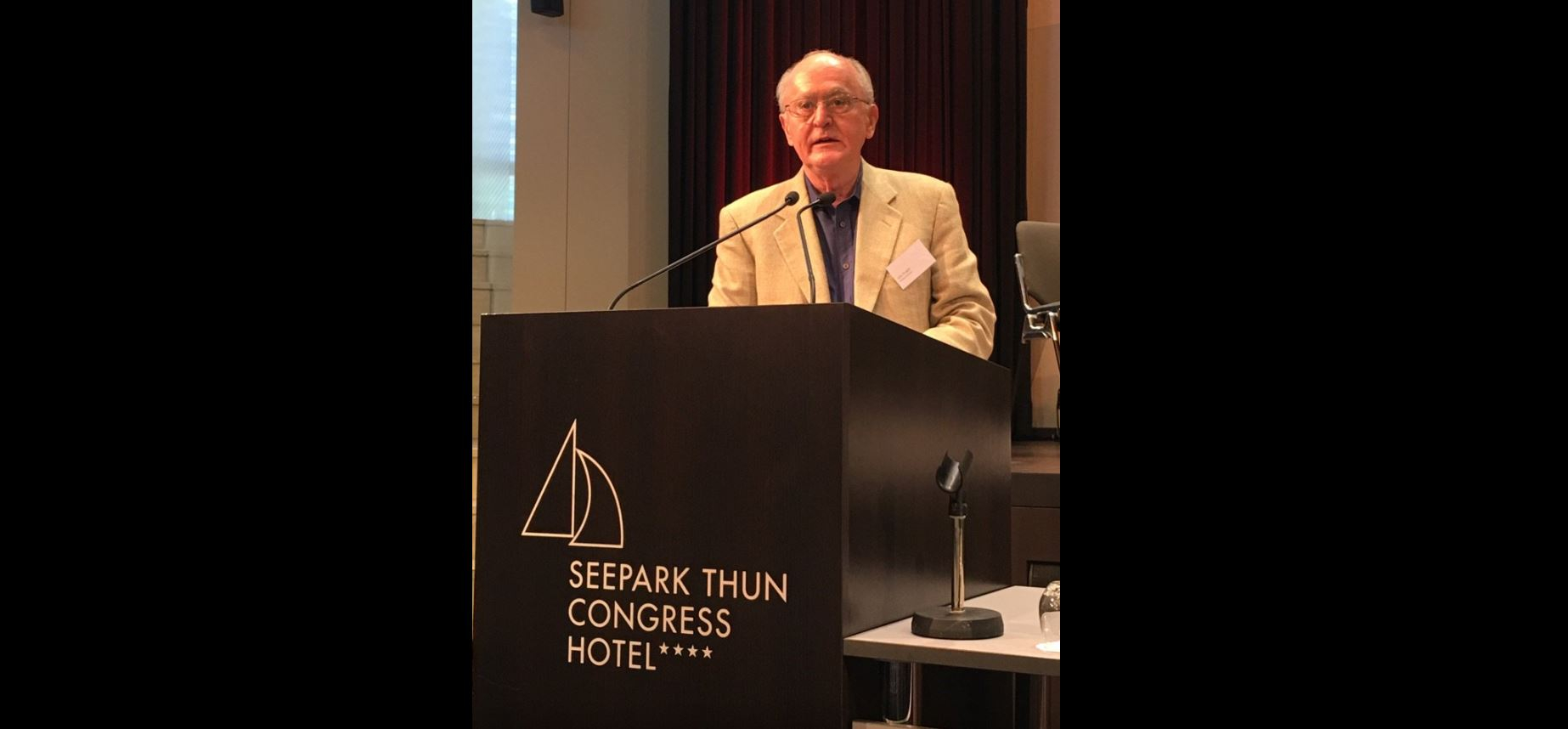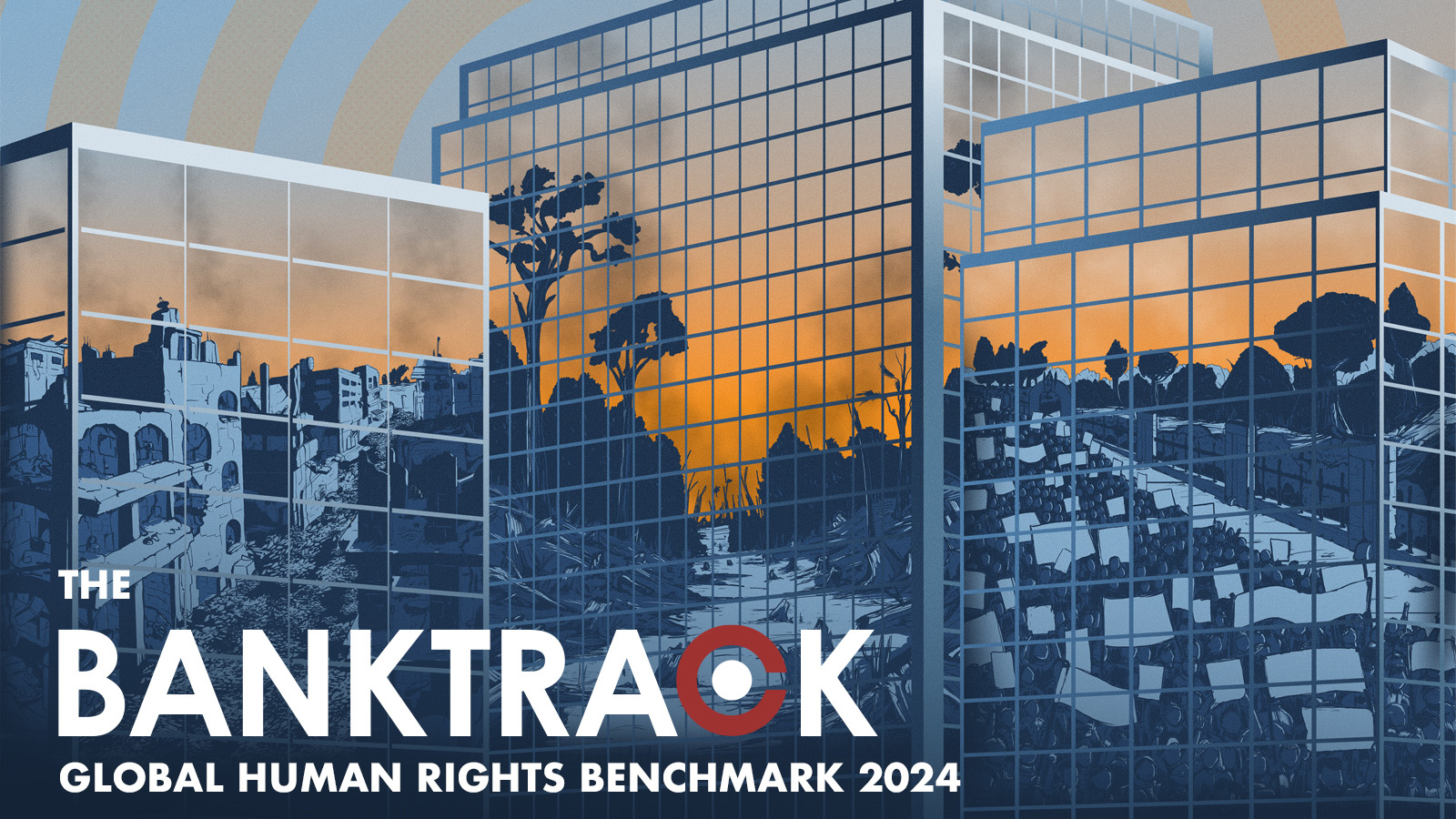Campaign Timeline
BankTrack has been campaigning on human rights for over 15 years, in which time we have lobbied successfully to ensure the UN Guiding Principles contain a clear link to bank activities, and followed this by campaigning for strong banks implementation of these principles. Below is an overview of the campaign so far:
2005: At its first strategy meeting, BankTrack identifies human rights one of its four main priority areas, and begins a Banks and Human Rights campaign, opening a new issue of debate with the banking community. BankTrack organizes a one day NGO meeting on Banks and Human rights, hosted by Netwerk Vlaanderen in Brussels.
2006: BankTrack hosts a three-day banks and human rights strategy meeting near Nijmegen, the Netherlands, bringing together human rights experts and BankTrack members to discuss banks' roles and responsibilities for upholding and promoting human rights. BankTrack member Berne Declaration launches its first publication to raise the issue of banks and human rights, including information about the process led by Prof. John Ruggie, the UN Special Representative on Business and Human Rights, started this year.
2007: A BankTrack paper 'Human Rights, Banking Risks' explores how human rights obligations can be integrated into bank policies. The report provides input to Prof. Ruggie's work on mapping the human rights responsibilities of business. BankTrack produces two briefings for input into Prof. Ruggie's consultation process: Corporate duty to respect: The relevance of private finance, and State duty to protect: The relevance of private finance. BankTrack's Mind the Gap report rates the publicly available policies of 45 banks, finding that 12 out of 45 multinational banks covered had developed specific human rights policies, but that these were mostly of a general and non-binding nature.
2008: All dodgy deals on the BankTrack website now address possible human rights impacts of the deal.
2009: BankTrack participates in Geneva in the UN consultation on how to operationalize the new "Protect, Respect and Remedy" Framework on business and human rights, proposed by the UN Special Representative, with a submission titled "Banking it Right". BankTrack contributes to the development of www.banksecrets.org, a critical site on the human rights impact of activities of large banks based in the European Union.
2010: BankTrack reviewed the policies of 49 internationally operating banks on the issue of human rights, as part of its Close the Gap report.
BankTrack submits the paper "Human Rights Responsibilities of Private Sector Banks" to the UN Special Representative, arguing for recognition of the differentiated responsibilities of Banks for respecting and promoting human rights. In October 2010, BankTrack participated in the UN consultation on how to operationalize the business and human rights' framework at a meeting chaired by Prof. Ruggie in Geneva.
The Berne Declaration launches the campaign website banksandhumanrights.ch, with the aim of pushing the Swiss global banks Credit Suisse and UBS to accept the relevance of the work of the UN Special Representative on Business and Human Rights for the financial sector. As a result Credit Suisse for the first time publishes summaries of its internal sector policies and guidelines later this year. The campaign is successful as both targeted banks clearly accept the relevance of the UN process.
2011: BankTrack comments on the last draft of the Guiding Principles and suggests stronger language to include the financial sector. BankTrack's lobbying efforts are rewarded with the addition of "services" to several parts of the UN Guiding Principles, making clear that they clearly apply to the financial sector. The UN Guiding Principles on Business and Human Rights (UNGPs) are unanimously adopted by the Human Rights Council, providing the clearest expression yet of the human rights responsibilities of business.
2012: The first UN Forum on Business and Human Rights is held in Geneva to discuss trends and challenges related to implementing the UNGPs. BankTrack, together with other civil society groups, makes a submission entitled "Financing Human Rights Abuse: The Role of Public and Private Financial Institutions", setting out our position as part of our continued engagement with this process.
2013: The Thun Group of Banks release a discussion paper on how the banking sector could implement Principles 16 - 21 of the UN Guiding Principles. BankTrack produces a paper in response, welcoming the Thun Group paper but highlighting key criticisms, and presents this to the second UN Forum on Business and Human Rights in Geneva.2014: In December, BankTrack publishes "Banking with Principles?", a benchmarking study which assesses 32 large banks around the world on their progress in implementing the UN Guiding Principles. It found that implementation was at an early stage, with only half of the banks covered having a clear commitment to respect human rights. Reporting and lack of grievance mechanisms were identified as areas of little progress. The report is launched at the third UN Forum in Geneva.
2015: BankTrack relaunches as an independent NGO rather than a network. BankTrack joins the Advisory Group for the OECD's project on Responsible Business Conduct in the Finance Sector, which will consider how the finance sector should implement the OECD Guidelines for Multinational Enterprises, and with them the UNGPs. BankTrack presented to the fourth UN Forum on Providing Access to Effective Remedy in the Finance Sector, as part of a panel which was organised in recognition of our findings in 2014 that the banking sector was making little progress on providing access to remedy.
2016: We publish "Banking with Principles? 2016 Update", an expanded benchmark of the human rights policies and processes of the largest 45 commercial banks, and well as the first two in a new series of Human Rights Impact Briefings, which examine instances of bank finance being linked to human rights violations and challenge banks on how they have responded. We organise a session at the fifth UN Forum together with bank representatives, discussing implementation case studies and dilemmas, and presenting the findings of the Briefings. And we made submissions as part of the development of the OECD's guidelines for Responsible Business Conduct in investment and asset management.
2017: In January the Thun Group of Banks publishes a second discussion paper, which misinterprets the UNGPs by ignoring the possibility that banks can contribute to human rights abuses via their finance. BankTrack coordinates a civil society open letter calling for it to be withdrawn and reconsidered. This is quickly echoed by the UN Working Group on Business and Human Rights and by Professor John Ruggie. The paper is eventually revised in December 2017 following a conference at which Professor Ruggie denounced the paper for its innacuracy. BankTrack also publishes a third Human Rights Impact Briefing on "banks and dirty diesel", and a paper called "How banks contribute to human rights abuses", which addresses the problems with the Thun Group's assumptions though a series of eight cases.

2018: In March we follow up on our earlier engagement with the Thun Group by responding to the revision in an open letter supported by 18 other CSOs and academics. In July we publish a key briefing on Developing Effective Grievance Mechanisms in the Banking Sector and hold two webinars to discuss its findings in September. Following the reports launch, in November an Australian government body ordered ANZ to establish a grievance mechanism in response to an OECD Guidelines complaint. We closely monitor the Dutch Banking Sector Agreement, publishing a series of three articles analysing the outputs of the DBA.
2019: We produce and publish the third iteration of the Human Rights Benchmark Report, assessing the progress of 50 large private sector banks towards full implementation of the UNGPs. In March we publish a briefing paper exploring the subject of client confidentiality, titled “We are unable to comment on specific customers”, which was the end result of a project, begun in 2017, to critically explore why banks so often use this exact line in response to civil society groups and members of the public when queried about the damaging impacts of specific projects or clients they finance. We continue to closely monitor the DBSA and raise an issue with the DBA's advisory panel in April regarding a question of whether banks contributed to adverse human rights impacts in the case of the Dakota Access Pipeline.
2020: In March, a group of 80 investors representing over US$200 billion in assets under management and coordinated by the Investor Alliance for Human Rights release a statement of support for the Benchmark. We paid close attention to the growing momentum for mandatory human rights and environmental due diligence (mHREDD) legislation at the EU level, and in June we joined 44 other organisations in sending a letter to Commissioner Reynders calling for strong EU rules. We also reported on the closing of the Dutch Banking Sector Agreement on Human Rights, and in particular the Independent Monitoring Committee’s criticism of its failure to address the issue of client confidentiality.
2021: In March 2021 we published our first regional human rights benchmark, covering 14 of the largest banks headquartered in Africa. We also initiated a project to begin systematically tracking bank responses to specific instances of human rights abuses linked to their finance, resulting in the December 2021 report “Actions speak louder”. In July we published a briefing paper on bank shareholdings in companies supporting the junta in Myanmar. We also joined the “Don’t Buy Into Occupation” coalition, contributing to its first report. And we secured guidance from the UN confirming banks’ human rights responsibilities when it comes to the impacts of companies in which they hold shares on behalf of clients. We responded to the EU consultation on mHREDD and published a blog encouraging banks to advocate transparently for a strong legal framework that extends to the impacts of bank finance. We also welcomed the launch of the first grievance mechanism in the banking sector by ANZ.
2022: In April, we published our second regional human rights benchmark, covering the practices and processes of 18 mid-tier banks in Asia. In September, we joined over 100 civil society organisations and trade unions in launching the “Justice is Everyone’s Business” campaign for a strong Corporate Sustainability Due Diligence Directive (CSDDD) that effectively prevents and holds businesses accountable for human rights and environmental violations. This was closely followed by a briefing setting out key recommendations for the CSDDD on the financial sector.
And in November we published the fourth edition of BankTrack’s Global Human Rights Benchmark, assessing the adherence of 50 of the world’s largest commercial banks to the UNGPs.
2023: We launched EquatorComplaints.org, an online complaints channel for the Equator Principles, for its own 20th anniversary. Austria’s Raiffeisen Bank was declared an “international sponsor of war” by Ukraine, and we led a coalition of civil society groups to call on the bank to leave Russia immediately. We co-published a report with Info Birmanie and Justice for Myanmar in July which names commercial banks whose investments are fueling widespread and systematic human rights violations in Myanmar. In September, a group of 47 investors representing US$861 billion in assets under management and advisement, coordinated by the Investor Alliance for Human Rights, signed a statement in support of the findings of our 2022 Global Human Rights Benchmark. In November, BankTrack co-organised a session at the twelfth UN Forum on Business and Human Rights, titled “Towards Effective Remedy in the Finance Sector.
2024: We published the fifth edition of our Global Human Rights Benchmark with expanded new criteria assessing banks’ approach to human rights defenders, Free, Prior and Informed Consent (FPIC), the right to a healthy environment; and any concrete examples of remedy. We also published BankTrack’s first Regional Benchmark for Latin America. And we also launched a dedicated web page for the Response Tracking database in a fully collated and searchable format. As Israel escalated attacks on Gaza, we co-published a briefing exposing the banks investing in arms producers supplying weapons to Israel. And as Russia continued its full-scale invasion of Ukraine, we challenged Raiffeisen Bank on its record profits and tax payments into Putin’s war coffers, inside and outside the bank's AGM.

